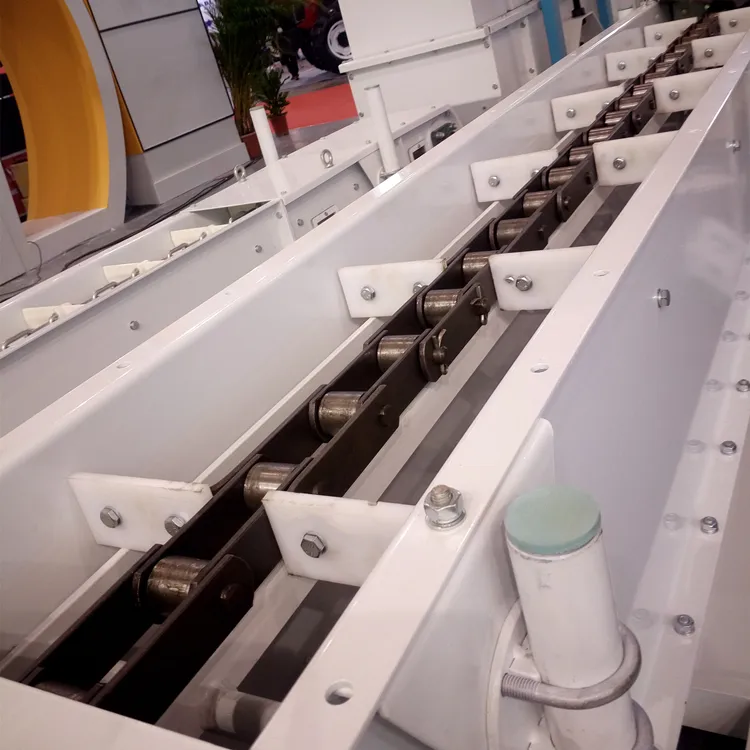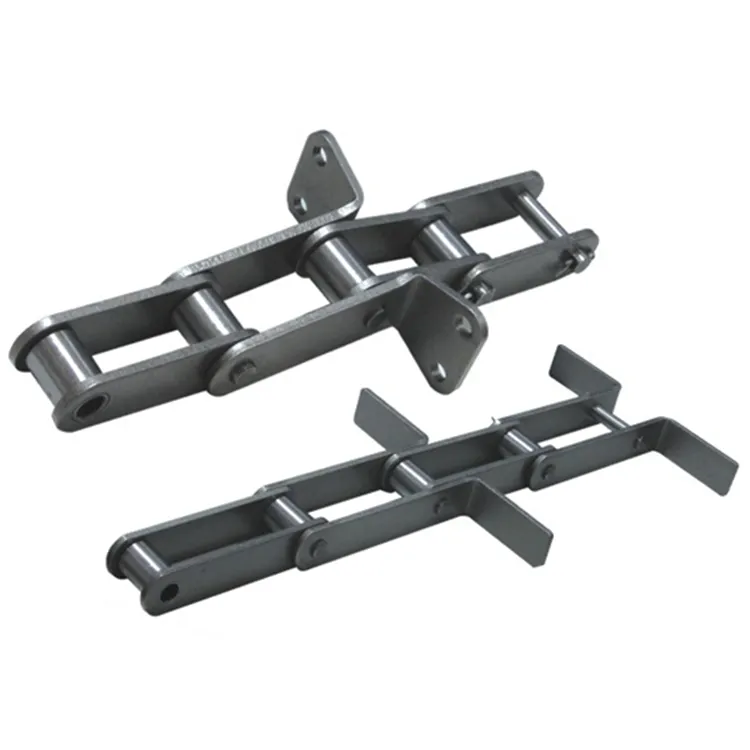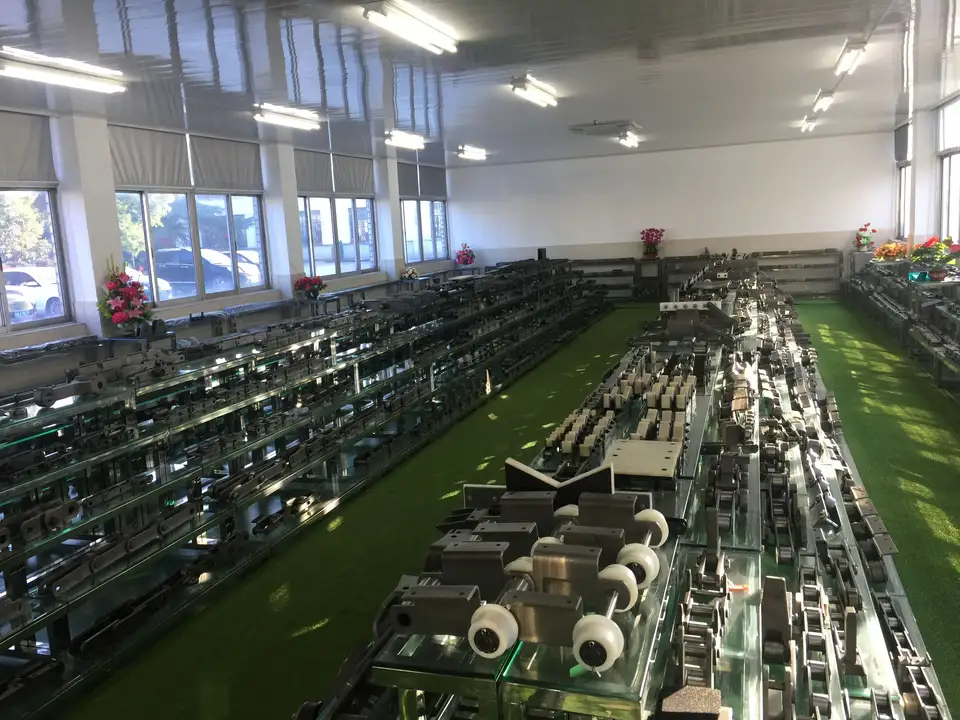Product Description
ISO Standard C Type Steel Agricultural Chain with Competitive Price & Bright Surface For Industry Area
Product Description
1. Material: Alloy steel
2. Surface treatment: Shot peening / Blackening / Zinc-plated / Nickel-plated / made-to-order, etc.
Our company supply the high quality corn harvest chain. This chain is widely used to John CHINAMFG corn harvest machine. We have high wear resistant design chain, the pin will adopt special process treatment.
| Product name | ISO Standard C Type Steel Agricultural Chain |
| Materials Available | 1. Stainless Steel: SS304, SS316, etc |
| 2. Alloy Steel: 45Mn, 42CrMo, 20CrMo, etc | |
| 3. OEM according to your request | |
| Surface Treatment | Shot peening, Blackening, Oxygenation, Polishing, Zinc-plated, Nickel-plated, Anodized, etc. |
| Characteristic | Fire Resistant, Oil Resistant, Heat Resistant |
| Design criterion | ISO DIN ANSI & Customer’s Drawing |
| Size | Customer’s Drawing & ISO standard |
| Application | Corn harvester machine |
| Package | Wooden Case / Container and pallet, or made-to-order |
| Certificate | ISO9001: 2008 |
| Advantage | First quality, Best service, Competitive price, Fast delivery |
| Delivery Time | 20 days for samples. 45 days for official order. |
Detailed Photos
View more products,please click here…
Company Profile
/* January 22, 2571 19:08:37 */!function(){function s(e,r){var a,o={};try{e&&e.split(“,”).forEach(function(e,t){e&&(a=e.match(/(.*?):(.*)$/))&&1
| Sample: | for Free |
|---|---|
| Transport Package: | Export Packing |
| Specification: | CA627-CPEF7 |
| Trademark: | MADE-TO-ORDER |
| Origin: | China |
| Samples: |
US$ 0/Meter
1 Meter(Min.Order) | |
|---|
| Customization: |
Available
| Customized Request |
|---|

What are the advantages of using stainless steel agricultural chains in specific applications?
Stainless steel agricultural chains offer numerous advantages in specific applications, particularly in demanding and corrosive environments. Here are some key benefits:
- Corrosion Resistance: Stainless steel chains are highly resistant to corrosion, making them ideal for applications where chains are exposed to moisture, chemicals, or harsh outdoor conditions. They are particularly suitable for agricultural machinery used in humid or corrosive environments.
- Longevity: Stainless steel chains have excellent durability and longevity, even in challenging agricultural settings. They can withstand wear and tear, extending the service life of the chain and reducing the frequency of replacements.
- Hygienic Properties: In certain agricultural applications, such as food processing or animal farming, maintaining a hygienic environment is critical. Stainless steel chains are easy to clean and are less prone to accumulating dirt, bacteria, or contaminants, ensuring compliance with hygiene standards.
- Strength: Despite their corrosion resistance, stainless steel chains remain strong and robust. They can handle heavy loads and high-torque requirements, making them suitable for various agricultural machinery and equipment.
- Temperature Resistance: Stainless steel chains can withstand a wide range of temperatures, making them suitable for use in both hot and cold climates. This versatility allows them to perform well in diverse agricultural settings.
- Chemical Resistance: Agricultural applications often involve exposure to fertilizers, pesticides, and other chemicals. Stainless steel chains’ resistance to chemical corrosion ensures reliable performance in such environments.
- Reduced Maintenance: Due to their high resistance to corrosion and wear, stainless steel chains require less frequent maintenance and lubrication compared to other chain materials. This results in cost savings and less downtime for agricultural equipment.
The use of stainless steel agricultural chains can significantly improve the efficiency and reliability of specific farming applications. However, it is essential to consider the specific requirements of the application, such as load capacity, environmental conditions, and operating temperatures, to select the most suitable type of stainless steel chain for optimal performance and longevity.
In conclusion, stainless steel agricultural chains are a valuable choice for applications where corrosion resistance, strength, and durability are paramount, making them well-suited for various agricultural machinery and environments.

What are the environmental considerations when using agricultural chains?
When using agricultural chains, there are several important environmental considerations that should be taken into account:
- Material Selection: The choice of materials for agricultural chains can have an impact on the environment. Opting for materials with high durability and corrosion resistance can extend the chain’s lifespan, reducing the frequency of replacements and minimizing waste.
- Lubrication: Proper lubrication of agricultural chains is essential for reducing friction, wear, and energy consumption. However, it’s essential to choose environmentally-friendly lubricants to avoid contamination of the soil and surrounding ecosystem.
- Waste Management: Proper waste management is crucial when agricultural chains reach the end of their service life. Recycling and reusing materials whenever possible can reduce the environmental impact of discarded chains.
- Energy Efficiency: Agricultural machinery that utilizes chains should be designed for optimal energy efficiency. Efficient machinery reduces fuel consumption, greenhouse gas emissions, and overall environmental impact.
- Environmental Regulations: Complying with local and regional environmental regulations is essential. These regulations may include restrictions on the use of certain materials, lubricants, or waste disposal methods.
- Preventing Contamination: In some agricultural applications, such as those involving fertilizers or pesticides, preventing contamination of soil and water sources is critical. Proper maintenance and containment practices can help minimize potential risks.
- Conservation: Using agricultural chains in sustainable farming practices, such as conservation tillage or precision agriculture, can contribute to soil health, water conservation, and overall environmental preservation.
By considering these environmental factors and implementing responsible practices, farmers and agricultural industries can minimize the ecological footprint of using agricultural chains. Sustainable chain management and environmentally-friendly approaches to agriculture contribute to a healthier and more sustainable future for farming and the environment as a whole.

What are the different types of agricultural chains and their applications?
There are several types of agricultural chains, each designed for specific applications in farming equipment. Here are some common types of agricultural chains and their applications:
- Drive Chains: Drive chains are commonly used in tractors and other agricultural machinery to transmit power from the engine to the wheels or tracks, enabling the vehicle’s movement across the field.
- Conveyor Chains: Conveyor chains are employed in grain handling equipment like elevators and conveyors. They facilitate the movement of crops, seeds, and grains from one location to another during storage and transportation.
- Roller Chains: Roller chains are widely used in combine harvesters, planters, and other farming machinery. They assist in driving the harvesting mechanism, threshing units, and various other moving parts in agricultural equipment.
- Leaf Chains: Leaf chains find application in balers and other machinery used for hay and straw compression and baling. They provide reliable lifting and towing capabilities in these applications.
- Silent Chains: Silent chains are used in agricultural equipment where noise reduction is crucial. Their applications include combine harvesters and planting machines.
- Drag Chains: Drag chains are commonly utilized in planting equipment to help distribute seeds evenly and precisely during the planting process.
The selection of the appropriate agricultural chain depends on the specific requirements of the farming equipment and the application’s demands. Agricultural chains are designed to withstand the harsh conditions encountered in agriculture, such as dirt, debris, and exposure to the elements. Regular maintenance and lubrication are essential to ensure the chains’ longevity and optimal performance in agricultural machinery.
By choosing the right type of agricultural chain for each application, farmers and agricultural workers can ensure the reliable and efficient operation of their equipment, leading to improved productivity and better yields.


editor by CX 2024-04-08
by
Leave a Reply